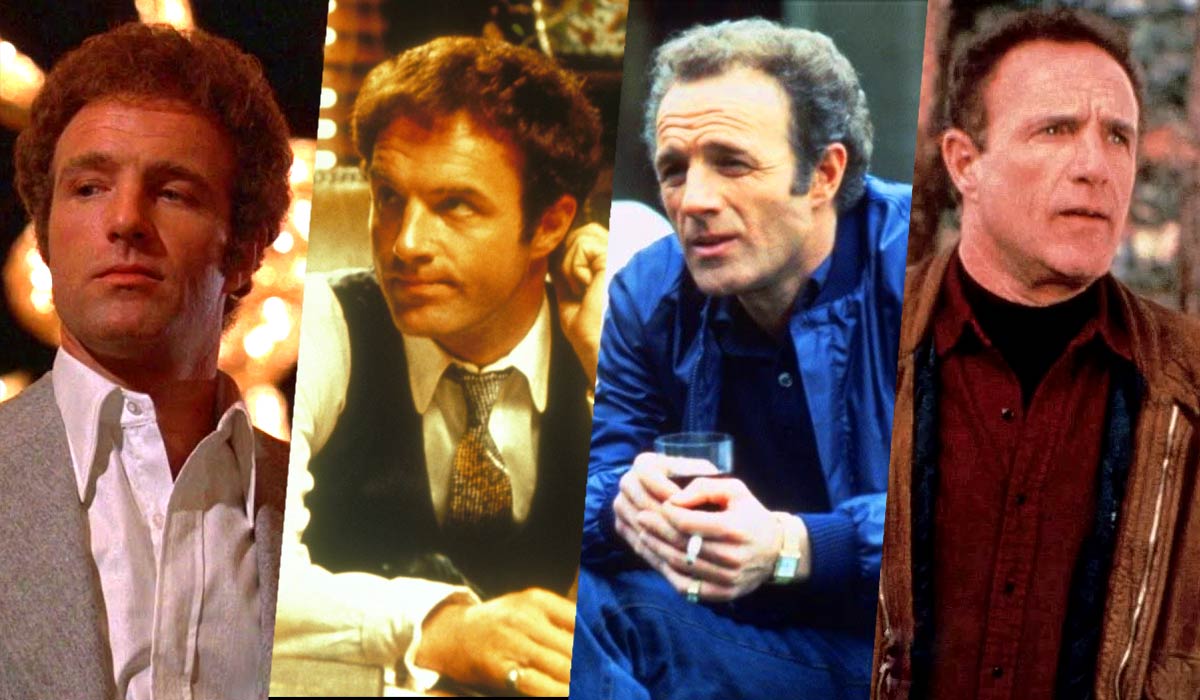“The Gambler” (1974)
Definitely one of the more underseen films on this list with a performance that’s just as good as any Caan delivered, “The Gambler,” written by James Toback and directed by Karel Reisz, is one of those quintessential and classic 1970s crime movies that’s not reasonably regarded as such. Perhaps that’s because its crime is more of the soul and one of morality. Co-starring Paul Sorvino and Lauren Hutton, “The Gambler” is arguably the “Uncut Gems” of its day but way less frantic. Caan plays Axel Freed, a thoughtful and caring English professor in New York City with a gambling addiction that begins to spiral out of control. Initially, he’s only hurting himself, but Axel— who cannot help but push the limits of his addiction— fatefully lures one of his college basketball team stars to shave points in a critical game so the mob can bet big on the game to cover his debt. As you’d expect, it all gets worse, darker, more tragic, and horrible in a moral morass of escalating terrible decisions. It’s another bruising look at the loss of a soul, an identity so corroded it’s beyond recognition, and Caan expertly navigates that devastating journey. – RP
“Funny Lady” (1975)
A handful of big names were brought in to read for Billy Rose, third husband to Fanny Brice, and her romantic opposite in the sequel to her origin-story film “Funny Girl.” What did Caan have that Robert Blake, Al Pacino, and Robert De Niro didn’t? Role-reprising leading lady Barbra Streisand put it in plain language: “It comes down to whom the audience wants me to kiss. Robert Blake, no. James Caan, yes.” Though the film itself has been largely consigned to the dustbin of history for a good reason, too desperate to please and only hitting that showbiz high through the effervescent compositions of Kander and Ebb, Caan acquits himself respectably. The last thing audiences took him for was a song-and-dance man, but he sounds comfortable and confident on “Me and My Shadow” and “It’s Only a Paper Moon/I Like Her,” the two numbers he sang for the original soundtrack. Post-hippie hirsute, sensitive, and troubled, he makes for a dialed-back foil to Kris Kristofferson’s tragic rocker that Streisand would play against one short year later in “A Star Is Born.” Caan’s sexual magnetism was present in every appearance on-screen. Still, this romance tapped into unprecedented depths of heaving-sigh hunkiness for the tough customer generally cast as an outside dog. Who wouldn’t want to curl up against his broad, undershirt-clad chest? Who could blame Fanny for falling head over heels? -CB
“Rollerball” (1975)
Who knows whether the recently shared anecdote about Caan forgetting he ever did “Rollerball” is apocryphal or not, and who cares that he wrote off the film as an “8 out of 10” in which he “couldn’t do much with the character.” He’s indelible as the last red-blooded American standing in a future dystopia bent on grinding the last impulses of individualism out of the human species, an übermensch that brought out a seldom-seen popcorn mass appeal from the gritty Caan. The shadowy cabal enforcing the barbaric gladiatorial sport of Rollerball intends it to be a form of crowd control, showing resistance crushed under the booted heel of brutality; Caan’s dauntless team captain, then, represents the equal and opposite fount of hope. He goes through hell in pursuit of a brighter tomorrow for his fellow man, and Caan’s stony conviction as a bastion of virtue makes the emotional stakes in what can sometimes be an outlandish sci-fi parable feel real. Within the parameters of a film often driven by kinetic energy, he still found space to stop and mine the sum total of pathos from a pair of powerful moments: his acceptance of the bitter reality that his wife won’t be coming back to him, and his gesture of mercy in refusing to murder his final opponent, both miniature showcases for the hardened humanity of Caan’s men pushed to the brink. -CB
“Thief” (1981)
Michael Mann’s immortal safecracking thriller can be fairly reduced to the story of a guy willing to fight for the right to live the kind of life he wants, and on his own terms; in no small way, this guy is James Caan. Not just in terms of the casting, though his chipped-tooth charm and calloused hardiness both made him the ideal choice for a tricky role demanding an actor at once inviting and forbidding. Caan himself cultivated an image not so dissimilar from that of Frank, less in the obsessive regimentation of his personal life but more in the fierce defense of his independence in a world that has every reason to make him fall in line. Frank’s an easy-to-love crook, pulling off his daring down-to-the-second heists in service of his dream to one day form a happy family with the comely cashier (Tuesday Weld) he’s been seeing. But we respect him for how jealously he guards his status as an empowered freelancer; essentially, his labor is not beholden to managers or oversight. “I am the boss of my own body,” he growls, telling off some pencil-neck who’d like to see him on the payroll. Caan’s own untamable stallion energy underscored the potency of the change Frank tries to make, as he lets another person in to a lifestyle he’s fought hard to keep in order. -CB





